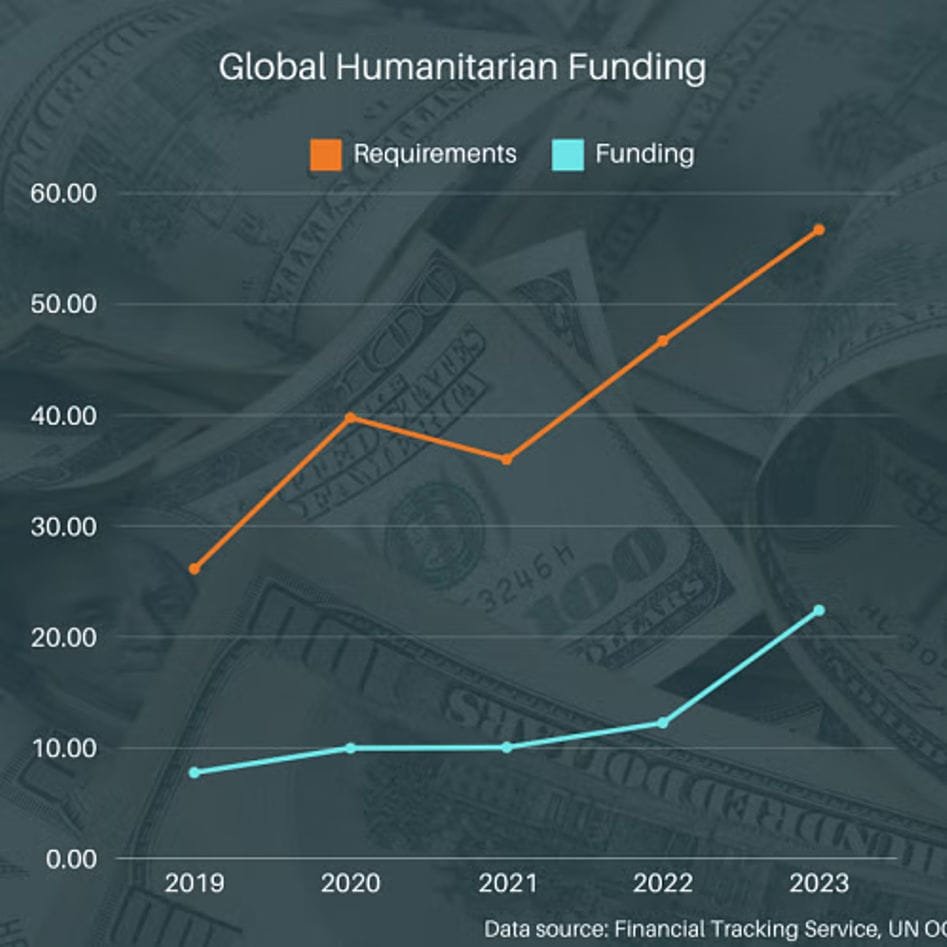The world is facing a growing humanitarian crisis, with millions of vulnerable people relying on international aid to survive. However, a recent decision by the United States to reduce its funding to the UN’s International Organization for Migration (IOM) by 30 percent has had a major impact on the global humanitarian sector. This drastic reduction—equivalent to a deficit of $1.1 billion—is expected to have severe consequences for migrant communities, displaced populations, and those living in extreme poverty.
IOM’s Role in Global Humanitarian Efforts
The International Organization for Migration (IOM) plays a critical role in meeting the needs of migrants and displaced people around the world. As a leading UN agency, IOM provides emergency shelter, medical care, food aid and employment support to millions of people affected by conflict, climate-related disasters and economic instability. Its operations span multiple continents, providing life-saving assistance to those forced to flee their homes due to war, persecution or environmental disasters.

With the US being one of IOM’s largest donors, recent funding cuts threaten to jeopardize these essential humanitarian efforts. Reduced financial support means that many crucial programs could be scaled back or shut down entirely, leaving countless people at risk.
The Impact on Displaced Communities
The consequences of these budget cuts will be devastating for displaced populations around the world. Here are some of the key areas where reduced funding will have the greatest impact:
1. Refugee Assistance and Resettlement Programs
Many refugees rely on IOM’s services to find safety and stability in host countries. With funding cuts, resettlement programs could be drastically reduced, leaving thousands of people trapped in refugee camps or conflict zones with no prospect of relocation.
2. Medical Care and Health Assistance
IOM provides essential medical services to displaced populations, including vaccinations, maternal care and emergency medical aid. Loss of financial support could result in shortages of medicines, reduced medical staff and reduced quality of care for those who need it most.
3. Food Security and Nutrition Programs
Millions of displaced people depend on food aid provided by IOM-supported programmes. Funding shortfalls are likely to result in food ration cuts, increasing malnutrition rates and worsening hunger crises in vulnerable regions.
4. Shelter and Emergency Response
In conflict zones and disaster-hit areas, IOM plays a critical role in providing emergency shelter for displaced people. Reduced funding will limit the organization’s ability to build temporary housing, provide essential supplies and respond to natural disasters.
5. Protection Against Human Trafficking
IOM leads efforts to combat human trafficking by supporting victims and working with governments to dismantle trafficking networks. With financial constraints, these programmes will struggle to continue, leaving more people vulnerable to exploitation.
The Connection Between Climate Disasters and Migration
Climate change is driving a surge in forced displacement around the world. Rising sea levels, extreme weather events and prolonged droughts have forced millions of people from their homes. According to the UN, more than 30 million people were displaced by climate-related disasters in 2024 alone.
With IOM funding cuts, many climate refugees will be left without support. This is particularly worrying as climate-induced migration continues to grow, putting further strain on already overstretched humanitarian systems.
The Geopolitical Implications of Funding Cuts
The US decision to reduce funding to the IOM has far-reaching geopolitical consequences. It signals a shift in international aid priorities and could encourage other donor countries to follow suit, leading to a domino effect on global humanitarian funding.
Furthermore, as the US withdraws its financial support, other countries—such as China and Russia—may step in to fill the gap, reshaping the balance of global influence in humanitarian affairs. This shift could have long-term consequences for international relations and the effectiveness of humanitarian interventions.
Calls for Urgent Action
Humanitarian organizations, activists and policymakers are calling for urgent action to address this funding crisis. Some key measures could help mitigate the impact of these cuts:
Search for Alternative Funding Sources: IOM and other UN agencies should seek alternative funding from European nations, private donors and philanthropic organizations to cover the shortfall.
Political Advocacy: International pressure on the US government to reconsider its funding cuts could help restore some financial support.
Improved Coordination Between Aid Organizations: Improved collaboration between international NGOs and UN agencies can help optimize resource allocation and ensure that aid reaches those who need it most.
Public Awareness Campaigns: Raising awareness among the global public about the consequences of these cuts can mobilize popular support and encourage donations to humanitarian organizations.
The US decision to cut funding to the International Organization for Migration is a major blow to global humanitarian efforts. This $1.1 billion shortfall threatens the lives of millions of displaced people, exacerbating existing crises and weakening support systems for the most vulnerable. Without urgent action, the world could face a surge in humanitarian disasters, food insecurity and climate-induced migration. The international community must act quickly to fill this funding gap and ensure that essential aid reaches those who need it most.




